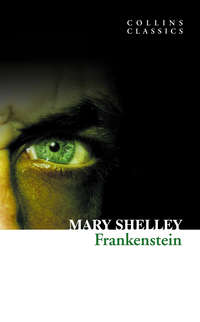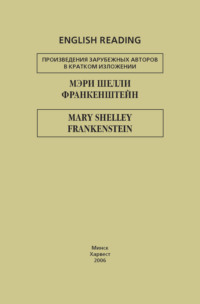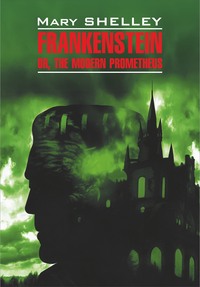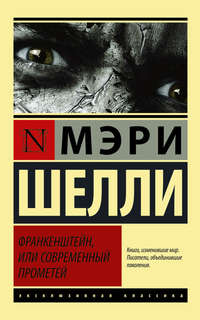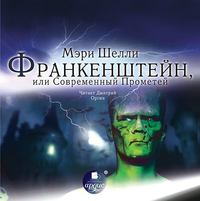 полная версия
полная версияThe Last Man
By examining the deputies apart, and after much investigation, we learnt the true state of things at Paris. Since parliament had elected him Ryland's deputy, all the surviving English had submitted to Adrian. He was our captain to lead us from our native soil to unknown lands, our lawgiver and our preserver. On the first arrangement of our scheme of emigration, no continued separation of our members was contemplated, and the command of the whole body in gradual ascent of power had its apex in the Earl of Windsor. But unforeseen circumstances changed our plans for us, and occasioned the greater part of our numbers to be divided for the space of nearly two months, from the supreme chief. They had gone over in two distinct bodies; and on their arrival at Paris dissension arose between them.
They had found Paris a desert. When first the plague had appeared, the return of travellers and merchants, and communications by letter, informed us regularly of the ravages made by disease on the continent. But with the encreased mortality this intercourse declined and ceased. Even in England itself communication from one part of the island to the other became slow and rare. No vessel stemmed the flood that divided Calais from Dover; or if some melancholy voyager, wishing to assure himself of the life or death of his relatives, put from the French shore to return among us, often the greedy ocean swallowed his little craft, or after a day or two he was infected by the disorder, and died before he could tell the tale of the desolation of France. We were therefore to a great degree ignorant of the state of things on the continent, and were not without some vague hope of finding numerous companions in its wide track. But the same causes that had so fearfully diminished the English nation had had even greater scope for mischief in the sister land. France was a blank; during the long line of road from Calais to Paris not one human being was found. In Paris there were a few, perhaps a hundred, who, resigned to their coming fate, flitted about the streets of the capital and assembled to converse of past times, with that vivacity and even gaiety that seldom deserts the individuals of this nation.
The English took uncontested possession of Paris. Its high houses and narrow streets were lifeless. A few pale figures were to be distinguished at the accustomed resort at the Tuileries; they wondered wherefore the islanders should approach their ill-fated city – for in the excess of wretchedness, the sufferers always imagine, that their part of the calamity is the bitterest, as, when enduring intense pain, we would exchange the particular torture we writhe under, for any other which should visit a different part of the frame. They listened to the account the emigrants gave of their motives for leaving their native land, with a shrug almost of disdain – "Return," they said, "return to your island, whose sea breezes, and division from the continent gives some promise of health; if Pestilence among you has slain its hundreds, with us it has slain its thousands. Are you not even now more numerous than we are? – A year ago you would have found only the sick burying the dead; now we are happier; for the pang of struggle has passed away, and the few you find here are patiently waiting the final blow. But you, who are not content to die, breathe no longer the air of France, or soon you will only be a part of her soil."
Thus, by menaces of the sword, they would have driven back those who had escaped from fire. But the peril left behind was deemed imminent by my countrymen; that before them doubtful and distant; and soon other feelings arose to obliterate fear, or to replace it by passions, that ought to have had no place among a brotherhood of unhappy survivors of the expiring world.
The more numerous division of emigrants, which arrived first at Paris, assumed a superiority of rank and power; the second party asserted their independence. A third was formed by a sectarian, a self-erected prophet, who, while he attributed all power and rule to God, strove to get the real command of his comrades into his own hands. This third division consisted of fewest individuals, but their purpose was more one, their obedience to their leader more entire, their fortitude and courage more unyielding and active.
During the whole progress of the plague, the teachers of religion were in possession of great power; a power of good, if rightly directed, or of incalculable mischief, if fanaticism or intolerance guided their efforts. In the present instance, a worse feeling than either of these actuated the leader. He was an impostor in the most determined sense of the term. A man who had in early life lost, through the indulgence of vicious propensities, all sense of rectitude or self-esteem; and who, when ambition was awakened in him, gave himself up to its influence unbridled by any scruple. His father had been a methodist preacher, an enthusiastic man with simple intentions; but whose pernicious doctrines of election and special grace had contributed to destroy all conscientious feeling in his son. During the progress of the pestilence he had entered upon various schemes, by which to acquire adherents and power. Adrian had discovered and defeated these attempts; but Adrian was absent; the wolf assumed the shepherd's garb, and the flock admitted the deception: he had formed a party during the few weeks he had been in Paris, who zealously propagated the creed of his divine mission, and believed that safety and salvation were to be afforded only to those who put their trust in him.
When once the spirit of dissension had arisen, the most frivolous causes gave it activity. The first party, on arriving at Paris, had taken possession of the Tuileries; chance and friendly feeling had induced the second to lodge near to them. A contest arose concerning the distribution of the pillage; the chiefs of the first division demanded that the whole should be placed at their disposal; with this assumption the opposite party refused to comply. When next the latter went to forage, the gates of Paris were shut on them. After overcoming this difficulty, they marched in a body to the Tuileries. They found that their enemies had been already expelled thence by the Elect, as the fanatical party designated themselves, who refused to admit any into the palace who did not first abjure obedience to all except God, and his delegate on earth, their chief. Such was the beginning of the strife, which at length proceeded so far, that the three divisions, armed, met in the Place Vendome, each resolved to subdue by force the resistance of its adversaries. They assembled, their muskets were loaded, and even pointed at the breasts of their so called enemies. One word had been sufficient; and there the last of mankind would have burthened their souls with the crime of murder, and dipt their hands in each other's blood. A sense of shame, a recollection that not only their cause, but the existence of the whole human race was at stake, entered the breast of the leader of the more numerous party. He was aware, that if the ranks were thinned, no other recruits could fill them up; that each man was as a priceless gem in a kingly crown, which if destroyed, the earth's deep entrails could yield no paragon. He was a young man, and had been hurried on by presumption, and the notion of his high rank and superiority to all other pretenders; now he repented his work, he felt that all the blood about to be shed would be on his head; with sudden impulse therefore he spurred his horse between the bands, and, having fixed a white handkerchief on the point of his uplifted sword, thus demanded parley; the opposite leaders obeyed the signal. He spoke with warmth; he reminded them of the oath all the chiefs had taken to submit to the Lord Protector; he declared their present meeting to be an act of treason and mutiny; he allowed that he had been hurried away by passion, but that a cooler moment had arrived; and he proposed that each party should send deputies to the Earl of Windsor, inviting his interference and offering submission to his decision. His offer was accepted so far, that each leader consented to command a retreat, and moreover agreed, that after the approbation of their several parties had been consulted, they should meet that night on some neutral spot to ratify the truce. At the meeting of the chiefs, this plan was finally concluded upon. The leader of the fanatics indeed refused to admit the arbitration of Adrian; he sent ambassadors, rather than deputies, to assert his claim, not plead his cause.
The truce was to continue until the first of February, when the bands were again to assemble on the Place Vendome; it was of the utmost consequence therefore that Adrian should arrive in Paris by that day, since an hair might turn the scale, and peace, scared away by intestine broils, might only return to watch by the silent dead. It was now the twenty-eighth of January; every vessel stationed near Dover had been beaten to pieces and destroyed by the furious storms I have commemorated. Our journey however would admit of no delay. That very night, Adrian, and I, and twelve others, either friends or attendants, put off from the English shore, in the boat that had brought over the deputies. We all took our turn at the oar; and the immediate occasion of our departure affording us abundant matter for conjecture and discourse, prevented the feeling that we left our native country, depopulate England, for the last time, to enter deeply into the minds of the greater part of our number. It was a serene starlight night, and the dark line of the English coast continued for some time visible at intervals, as we rose on the broad back of the waves. I exerted myself with my long oar to give swift impulse to our skiff; and, while the waters splashed with melancholy sound against its sides, I looked with sad affection on this last glimpse of sea-girt England, and strained my eyes not too soon to lose sight of the castellated cliff, which rose to protect the land of heroism and beauty from the inroads of ocean, that, turbulent as I had lately seen it, required such cyclopean walls for its repulsion. A solitary sea-gull winged its flight over our heads, to seek its nest in a cleft of the precipice. Yes, thou shalt revisit the land of thy birth, I thought, as I looked invidiously on the airy voyager; but we shall, never more! Tomb of Idris, farewell! Grave, in which my heart lies sepultured, farewell for ever!
We were twelve hours at sea, and the heavy swell obliged us to exert all our strength. At length, by mere dint of rowing, we reached the French coast. The stars faded, and the grey morning cast a dim veil over the silver horns of the waning moon – the sun rose broad and red from the sea, as we walked over the sands to Calais. Our first care was to procure horses, and although wearied by our night of watching and toil, some of our party immediately went in quest of these in the wide fields of the unenclosed and now barren plain round Calais. We divided ourselves, like seamen, into watches, and some reposed, while others prepared the morning's repast. Our foragers returned at noon with only six horses – on these, Adrian and I, and four others, proceeded on our journey towards the great city, which its inhabitants had fondly named the capital of the civilized world. Our horses had become, through their long holiday, almost wild, and we crossed the plain round Calais with impetuous speed. From the height near Boulogne, I turned again to look on England; nature had cast a misty pall over her, her cliff was hidden – there was spread the watery barrier that divided us, never again to be crossed; she lay on the ocean plain, In the great pool a swan's nest.
Ruined the nest, alas! the swans of Albion had passed away for ever – an uninhabited rock in the wide Pacific, which had remained since the creation uninhabited, unnamed, unmarked, would be of as much account in the world's future history, as desert England.
Our journey was impeded by a thousand obstacles. As our horses grew tired, we had to seek for others; and hours were wasted, while we exhausted our artifices to allure some of these enfranchised slaves of man to resume the yoke; or as we went from stable to stable through the towns, hoping to find some who had not forgotten the shelter of their native stalls. Our ill success in procuring them, obliged us continually to leave some one of our companions behind; and on the first of February, Adrian and I entered Paris, wholly unaccompanied. The serene morning had dawned when we arrived at Saint Denis, and the sun was high, when the clamour of voices, and the clash, as we feared, of weapons, guided us to where our countrymen had assembled on the Place Vendome. We passed a knot of Frenchmen, who were talking earnestly of the madness of the insular invaders, and then coming by a sudden turn upon the Place, we saw the sun glitter on drawn swords and fixed bayonets, while yells and clamours rent the air. It was a scene of unaccustomed confusion in these days of depopulation. Roused by fancied wrongs, and insulting scoffs, the opposite parties had rushed to attack each other; while the elect, drawn up apart, seemed to wait an opportunity to fall with better advantage on their foes, when they should have mutually weakened each other. A merciful power interposed, and no blood was shed; for, while the insane mob were in the very act of attack, the females, wives, mothers and daughters, rushed between; they seized the bridles; they embraced the knees of the horsemen, and hung on the necks, or enweaponed arms of their enraged relatives; the shrill female scream was mingled with the manly shout, and formed the wild clamour that welcomed us on our arrival.
Our voices could not be heard in the tumult; Adrian however was eminent for the white charger he rode; spurring him, he dashed into the midst of the throng: he was recognized, and a loud cry raised for England and the Protector. The late adversaries, warmed to affection at the sight of him, joined in heedless confusion, and surrounded him; the women kissed his hands, and the edges of his garments; nay, his horse received tribute of their embraces; some wept their welcome; he appeared an angel of peace descended among them; and the only danger was, that his mortal nature would be demonstrated, by his suffocation from the kindness of his friends. His voice was at length heard, and obeyed; the crowd fell back; the chiefs alone rallied round him. I had seen Lord Raymond ride through his lines; his look of victory, and majestic mien obtained the respect and obedience of all: such was not the appearance or influence of Adrian. His slight figure, his fervent look, his gesture, more of deprecation than rule, were proofs that love, unmingled with fear, gave him dominion over the hearts of a multitude, who knew that he never flinched from danger, nor was actuated by other motives than care for the general welfare. No distinction was now visible between the two parties, late ready to shed each other's blood, for, though neither would submit to the other, they both yielded ready obedience to the Earl of Windsor.
One party however remained, cut off from the rest, which did not sympathize in the joy exhibited on Adrian's arrival, or imbibe the spirit of peace, which fell like dew upon the softened hearts of their countrymen. At the head of this assembly was a ponderous, dark-looking man, whose malign eye surveyed with gloating delight the stern looks of his followers. They had hitherto been inactive, but now, perceiving themselves to be forgotten in the universal jubilee, they advanced with threatening gestures: our friends had, as it were in wanton contention, attacked each other; they wanted but to be told that their cause was one, for it to become so: their mutual anger had been a fire of straw, compared to the slow-burning hatred they both entertained for these seceders, who seized a portion of the world to come, there to entrench and incastellate themselves, and to issue with fearful sally, and appalling denunciations, on the mere common children of the earth. The first advance of the little army of the elect reawakened their rage; they grasped their arms, and waited but their leader's signal to commence the attack, when the clear tones of Adrian's voice were heard, commanding them to fall back; with confused murmur and hurried retreat, as the wave ebbs clamorously from the sands it lately covered, our friends obeyed. Adrian rode singly into the space between the opposing bands; he approached the hostile leader, as requesting him to imitate his example, but his look was not obeyed, and the chief advanced, followed by his whole troop. There were many women among them, who seemed more eager and resolute than their male companions. They pressed round their leader, as if to shield him, while they loudly bestowed on him every sacred denomination and epithet of worship. Adrian met them half way; they halted: "What," he said, "do you seek? Do you require any thing of us that we refuse to give, and that you are forced to acquire by arms and warfare?"
His questions were answered by a general cry, in which the words election, sin, and red right arm of God, could alone be heard.
Adrian looked expressly at their leader, saying, "Can you not silence your followers? Mine, you perceive, obey me."
The fellow answered by a scowl; and then, perhaps fearful that his people should become auditors of the debate he expected to ensue, he commanded them to fall back, and advanced by himself. "What, I again ask," said Adrian, "do you require of us?"
"Repentance," replied the man, whose sinister brow gathered clouds as he spoke. "Obedience to the will of the Most High, made manifest to these his Elected People. Do we not all die through your sins, O generation of unbelief, and have we not a right to demand of you repentance and obedience?"
"And if we refuse them, what then?" his opponent inquired mildly.
"Beware," cried the man, "God hears you, and will smite your stony heart in his wrath; his poisoned arrows fly, his dogs of death are unleashed! We will not perish unrevenged – and mighty will our avenger be, when he descends in visible majesty, and scatters destruction among you."
"My good fellow," said Adrian, with quiet scorn, "I wish that you were ignorant only, and I think it would be no difficult task to prove to you, that you speak of what you do not understand. On the present occasion however, it is enough for me to know that you seek nothing of us; and, heaven is our witness, we seek nothing of you. I should be sorry to embitter by strife the few days that we any of us may have here to live; when there," he pointed downwards, "we shall not be able to contend, while here we need not. Go home, or stay; pray to your God in your own mode; your friends may do the like. My orisons consist in peace and good will, in resignation and hope. Farewell!"
He bowed slightly to the angry disputant who was about to reply; and, turning his horse down Rue Saint Honore, called on his friends to follow him. He rode slowly, to give time to all to join him at the Barrier, and then issued his orders that those who yielded obedience to him, should rendezvous at Versailles. In the meantime he remained within the walls of Paris, until he had secured the safe retreat of all. In about a fortnight the remainder of the emigrants arrived from England, and they all repaired to Versailles; apartments were prepared for the family of the Protector in the Grand Trianon, and there, after the excitement of these events, we reposed amidst the luxuries of the departed Bourbons.
CHAPTER V
AFTER the repose of a few days, we held a council, to decide on our future movements. Our first plan had been to quit our wintry native latitude, and seek for our diminished numbers the luxuries and delights of a southern climate. We had not fixed on any precise spot as the termination of our wanderings; but a vague picture of perpetual spring, fragrant groves, and sparkling streams, floated in our imagination to entice us on. A variety of causes had detained us in England, and we had now arrived at the middle of February; if we pursued our original project, we should find ourselves in a worse situation than before, having exchanged our temperate climate for the intolerable heats of a summer in Egypt or Persia. We were therefore obliged to modify our plan, as the season continued to be inclement; and it was determined that we should await the arrival of spring in our present abode, and so order our future movements as to pass the hot months in the icy vallies of Switzerland, deferring our southern progress until the ensuing autumn, if such a season was ever again to be beheld by us.
The castle and town of Versailles afforded our numbers ample accommodation, and foraging parties took it by turns to supply our wants. There was a strange and appalling motley in the situation of these the last of the race. At first I likened it to a colony, which borne over the far seas, struck root for the first time in a new country. But where was the bustle and industry characteristic of such an assemblage; the rudely constructed dwelling, which was to suffice till a more commodious mansion could be built; the marking out of fields; the attempt at cultivation; the eager curiosity to discover unknown animals and herbs; the excursions for the sake of exploring the country? Our habitations were palaces our food was ready stored in granaries – there was no need of labour, no inquisitiveness, no restless desire to get on. If we had been assured that we should secure the lives of our present numbers, there would have been more vivacity and hope in our councils. We should have discussed as to the period when the existing produce for man's sustenance would no longer suffice for us, and what mode of life we should then adopt. We should have considered more carefully our future plans, and debated concerning the spot where we should in future dwell. But summer and the plague were near, and we dared not look forward. Every heart sickened at the thought of amusement; if the younger part of our community were ever impelled, by youthful and untamed hilarity, to enter on any dance or song, to cheer the melancholy time, they would suddenly break off, checked by a mournful look or agonizing sigh from any one among them, who was prevented by sorrows and losses from mingling in the festivity. If laughter echoed under our roof, yet the heart was vacant of joy; and, when ever it chanced that I witnessed such attempts at pastime, they encreased instead of diminishing my sense of woe. In the midst of the pleasure-hunting throng, I would close my eyes, and see before me the obscure cavern, where was garnered the mortality of Idris, and the dead lay around, mouldering in hushed repose. When I again became aware of the present hour, softest melody of Lydian flute, or harmonious maze of graceful dance, was but as the demoniac chorus in the Wolf's Glen, and the caperings of the reptiles that surrounded the magic circle.
My dearest interval of peace occurred, when, released from the obligation of associating with the crowd, I could repose in the dear home where my children lived. Children I say, for the tenderest emotions of paternity bound me to Clara. She was now fourteen; sorrow, and deep insight into the scenes around her, calmed the restless spirit of girlhood; while the remembrance of her father whom she idolized, and respect for me and Adrian, implanted an high sense of duty in her young heart. Though serious she was not sad; the eager desire that makes us all, when young, plume our wings, and stretch our necks, that we may more swiftly alight tiptoe on the height of maturity, was subdued in her by early experience. All that she could spare of overflowing love from her parents' memory, and attention to her living relatives, was spent upon religion. This was the hidden law of her heart, which she concealed with childish reserve, and cherished the more because it was secret. What faith so entire, what charity so pure, what hope so fervent, as that of early youth? and she, all love, all tenderness and trust, who from infancy had been tossed on the wide sea of passion and misfortune, saw the finger of apparent divinity in all, and her best hope was to make herself acceptable to the power she worshipped. Evelyn was only five years old; his joyous heart was incapable of sorrow, and he enlivened our house with the innocent mirth incident to his years.
The aged Countess of Windsor had fallen from her dream of power, rank and grandeur; she had been suddenly seized with the conviction, that love was the only good of life, virtue the only ennobling distinction and enriching wealth. Such a lesson had been taught her by the dead lips of her neglected daughter; and she devoted herself, with all the fiery violence of her character, to the obtaining the affection of the remnants of her family. In early years the heart of Adrian had been chilled towards her; and, though he observed a due respect, her coldness, mixed with the recollection of disappointment and madness, caused him to feel even pain in her society. She saw this, and yet determined to win his love; the obstacle served the rather to excite her ambition. As Henry, Emperor of Germany, lay in the snow before Pope Leo's gate for three winter days and nights, so did she in humility wait before the icy barriers of his closed heart, till he, the servant of love, and prince of tender courtesy, opened it wide for her admittance, bestowing, with fervency and gratitude, the tribute of filial affection she merited. Her understanding, courage, and presence of mind, became powerful auxiliaries to him in the difficult task of ruling the tumultuous crowd, which were subjected to his control, in truth by a single hair.


